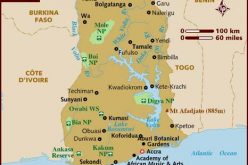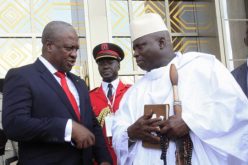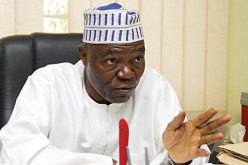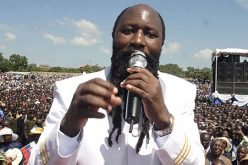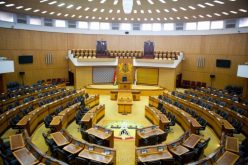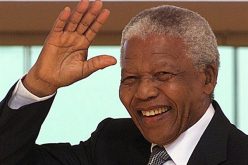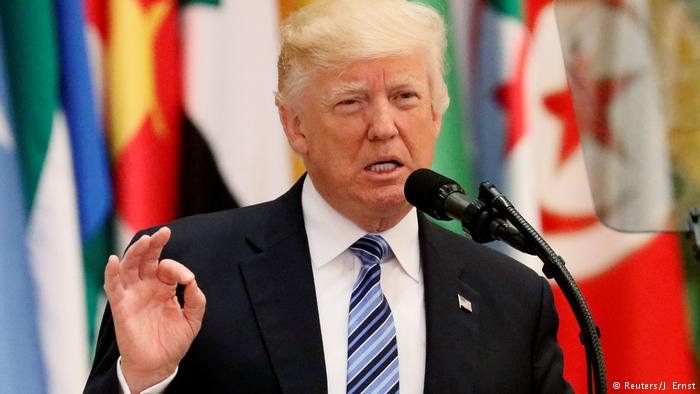 www.dw.com – In his first half year in office, the US president has spoken very little about Africa, except in the context of a budget proposal that demands deep cuts to the US development aid in Africa.
www.dw.com – In his first half year in office, the US president has spoken very little about Africa, except in the context of a budget proposal that demands deep cuts to the US development aid in Africa.
A few weeks after he came into office, the US President Donald Trump made two phone calls to African leaders: Nigerian President Muhammadu Buhari and South African President Jacob Zuma, assuring them that he was willing to strengthen bilateral relations with the two African powerhouses.
In March, he made another phone call, this time to Kenyan President Uhuru Kenyatta. But since then, nothing much has moved in US policy towards Africa.
In fact, it seems that Africa is off the agenda in Washington as the White House is preoccupied with domestic scandals, and topics like immigration, terrorism, and countries like Iran and North Korea.
One major problem is that even after six months in power, Trump still hasn’t filled some important posts dealing with Africa at the State Department, which deals with US’ foreign policy. Bronwyn Bruton, Deputy Director of the Africa Center at the Atlantic Council, said that the Africa policy is not made at senior levels. “Right now, there is an acting assistant director. But if you are not appointed, you’re not empowered,” Bruton said. “So essentially, Africa policy is on hold,” she added.
Opportunity for African dictators
Trump’s approach towards foreign policy, in general, doesn’t put a lot of emphasis on building strategic alliances based on shared values, or long-term development to improve economic conditions and good governance. Instead, he favors a transactional approach, looking for short-term gains through bilateral deals. Bruton thinks this could be good news for dictators and authoritarian regimes throughout Africa, and bad news for human rights activists.
Similarly, the Obama administration marginalized some governments like Zimbabwe, Sudan, and Eritrea – countries that have had extensive criticism leveled against them for their human rights record. “Countries like these are full of anticipation and happiness that there is a president who doesn’t care very much about human rights and is willing to be fully transactional in his relationship with other governments,” Bruton said.
Many observers among the United States diplomatic corps and foreign policy establishment fear that a neglect of long-term alliances and regional cooperation could lead to a political and economic vacuum in Africa – a gap other countries such as China, India or Brazil are only too eager to fill. “There’s a contest for resources from Africa. And China is way ahead, and doing a lot more for Africa and a lot more in Africa,” Ayodele Kusamotu, a Nigerian lawyer said at a US-African Business Summit in Washington. “It seems like the policy of the administration is to look inwards, to put America first and do less business with other people.”
The 2017 US-Africa Business Summit held 13-16 June in Washington, DC, offered one of the first opportunities for the US and Africa’s private sector to engage with the Trump Administration.
Potential trade partner
Participants at the summit pointed out that they expect a different attitude from their American counterparts. “We need the US to reconsider the way they are dealing with Africa. We don’t need aid and some subsidies,” Abdu Suleye Diop, who represented Morocco’s business community at the summit, said.
Although not all expectations of African business leaders are likely to be fulfilled – the fact that the US-African business summit went ahead and was even attended by US Secretary of Commerce, Wilbur Ross, was seen by many participants as a good sign.
After all, the summit had originally been initiated by Trump’s predecessor Barack Obama, and Donald Trump has wasted no time in many other areas to reverse Obama’s policies as much as he can.
Trade could, in fact, be one of the areas where the new US government will not only continue policies of the Obama administration but start some new initiatives in the near future. Brian Neubert, the Director of the US State Department’s Regional Hub in Johannesburg said there are trade opportunities with many African markets since Africa is already investing in its infrastructure. “There are opportunities for American companies with technology and products and services. And then, of course, many African countries produce products for the US market,” Neubert said.
Free hand for US generals
The one area, however, where the United States is almost certain to step up its engagement in Africa is the military, particularly fighting terrorist groups – one of the central campaign promises of Donald Trump during last year’s elections.
Even under Obama, the US extended its network of military bases throughout the continent to gather intelligence and carry out drone strikes. President Trump is giving his military a free hand to go even further, said Katie Zimmerman of the conservative think tank, ‘American Enterprise Institute.’ “The most significant to date has been with regard to Somalia which came through on March 17, where US forces now have the ability to conduct offensive attacks against al-Shabab in protection of our partners on the ground,” Zimmerman said.
She warned though that focusing exclusively on military solutions will not be enough to deal with the transnational threat terrorism poses to the United States and her allies in Africa. Military might, economic development, and good governance have to go hand in hand to maintain and improve stability. It might not be a bad thing that Donald Trump has not had the time to put his mark on America’s Africa policy yet, so at least some continuity is preserved at least for the time being.


